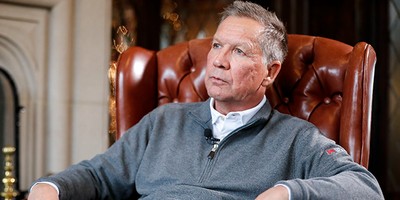The ultimate constraint that we all face is knowledge -- what we know and don't know. The knowledge problem is pervasive and by no means trivial as hinted at by just a few examples. You've purchased a house. Was it the best deal you could have gotten? Was there some other house you could have purchased that 10 years later would not have needed extensive repairs or was in a community with more likeable neighbors and a better environment for your children? What about the person you married? Was there another person who would have made for a more pleasing spouse? Though these are important questions, the most intelligent answer you can give to all of them is: "I don't know."
Since you don't know the answers, who do you think, here on Earth, is likely to know and whom would you like to make these decisions for you -- Nancy Pelosi, Harry Reid, George Bush, a czar appointed by Obama or a committee of Washington bureaucrats? I bet that if these people were to forcibly make housing or marital decisions for us, most would deem it tyranny.

You say, "Williams, Congress is not making such monumental decisions that affect my life." Try this. You are a 22-year-old healthy person. Instead of spending $3,000 or $4,000 a year for health insurance, you'd prefer investing that money in equipment to start a landscaping business. Which is the best use of that $3,000 or $4,000 a year -- purchasing health insurance or starting up a landscaping business -- and who should decide that question: Nancy Pelosi, Harry Reid, George Bush, aczar appointed by Obama or a committee of Washington bureaucrats? How can they possibly know what's the best use of your earnings, particularly in light of the fact that they have no idea of who you are?
Neither you nor the U.S. Congress has the complete knowledge to know exactly what's best for you. The difference is that when individuals make their own trade-offs, say between purchasing health insurance or investing in a business, they make wiser decisions because it is they who personally bear the costs and benefits of those decisions. You say, "Hold it, Williams, we've got you now! What if that person gets really sick and doesn't have health insurance. Society suffers the burden of taking care of him." To the extent that is a problem, it is not a problem of liberty; it's a problem of congressionally mandated socialism. Let's look at it.
Recommended
It is not society that bears the burden; it is some flesh and blood American worker who finds his earnings taken by Congress to finance the health needs of another person. There is absolutely no moral case, much less constitutional case, for Congress forcibly using one American to serve the purposes of another American, a practice that differs only in degree from slavery, which we all should find morally offensive.
Whether it is health care, education, employment or most other areas of our lives, I ask you: Who has the capacity to master all the complexity to make choices on behalf of others? Each of us possesses only a tiny percentage of the knowledge that would be necessary to make totally informed decisions in our own lives, much less the lives of others. There is only one reason for the forcible transference of decision-making authority over important areas of our private lives to elite decision-makers in Congress and government bureaucracies. Doing so confers control, power, wealth and revenue to society's elite. What's in the best interests of individual members of society, such as a person who'd rather launch a landscaping business than purchase a health insurance policy, ranks low on the elite's list of priorities.
























Join the conversation as a VIP Member